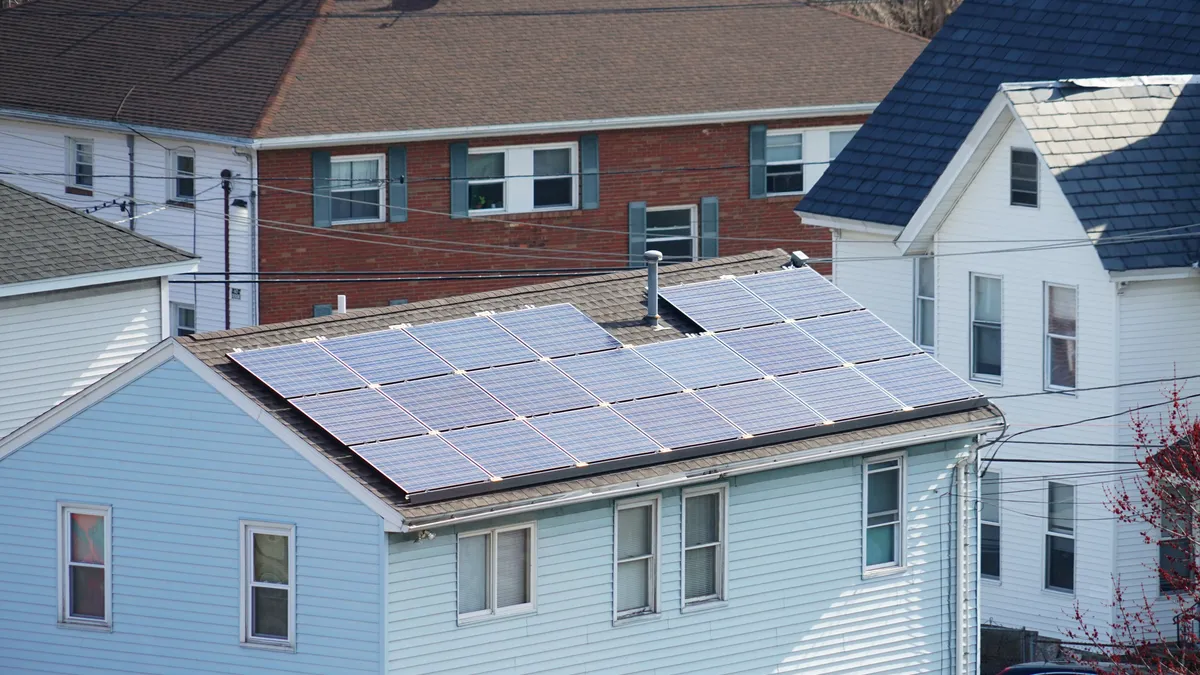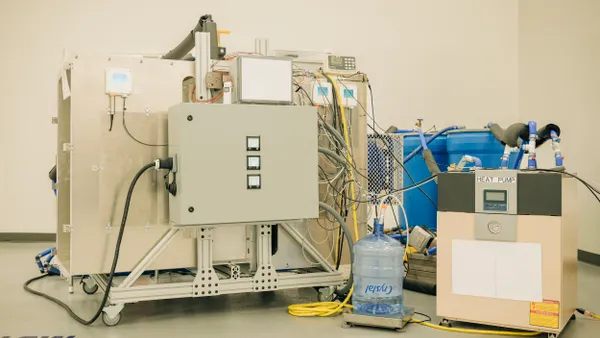Dive Brief:
- The U.S. Environmental Protection Agency has awarded $7 billion to 60 recipients under the Solar for All provisions of the Inflation Reduction Act. Per the IRA, the funds must be used to improve low-income households' access to solar energy.
- Awarded funds went to community solar projects, initiatives offering loans and grants to low-income households looking to install rooftop solar, and to initiatives aimed at reducing barriers associated with siting, permitting and interconnection, according to the EPA.
- The funds will not only reduce carbon emissions, but also create jobs and reduce the disproportionate impact of rising energy costs on low-income households, President Joe Biden said during an Earth Day celebration in Triangle, Virginia.
Dive Insight:
President Biden made an economic case for fighting climate change during his Monday afternoon remarks on Earth Day.
Low-income Americans, he said, might spend up to 30% of their paychecks on energy. With the Solar for All funding, he estimated that communities around the country will gain 200,000 new jobs and install rooftop solar on 900,000 homes. Sen. Bernie Sanders (I-Vermont), who also spoke at Monday's ceremony, said the program should more than pay for itself with the energy savings it generates.
“In my state of Vermont and around the country, we are seeing more and more people install solar panels on their roofs. And the reason is simple: when they do that, they cut their electric bills by 70-90%,” Sanders said. “The problem is that in order to get those annual savings, you need to make an initial investment. And depending on the size of your home and where you live, that investment in solar panels may be $10,000-20,000, which is a lot of money if you are an average American. And that is where the Solar for All program comes in.”
Of the total funding, $5.5 billion went to state-level initiatives. Tribal solar access programs received $500 million in awards, while multistate programs claimed $1 billion, according to the EPA. The awards will create new programs in at least 25 states and territories that previously lacked solar accessibility programs, according to the EPA.
Several grant recipients plan to use the funds for existing programs with demonstrated success, including the Solar on Multifamily Affordable Housing program by GRID Alternatives. GRID Alternatives' San Diego team installed a solar energy system at a home for youth transitioning out of foster care, where the long-term energy savings will be used to expand job and life skills training for residents of the home, according to the EPA.
“Solar for All represents an almost literal breath of fresh air for millions of Americans. Together with our partners, GRID Alternatives is excited to work with EPA to build on our work over the last 20 years, expanding access to solar energy and its benefits, including real savings, quality jobs, and a better environment for folks,” Erica Mackie, GRID Alternatives CEO and co-founder, said in a statement.
But not everyone reacted to Monday's news with such enthusiasm. Brandon Smithwood, vice president of policy for community solar developer Dimension Renewable Energy, questioned an award of nearly $250 million to the California Infrastructure Economic Development Bank in light of a controversial decision restructuring the state's community solar programs.
“While we’re glad to hear that California will get some of these important funds, without a functioning community solar-plus-storage program in place in the state, ‘Solar for All’ is a complete misnomer,” Smithwood said in a statement. “The vast majority of renters and low-income Californians cannot currently access affordable solar energy.”
But Sanders and President Biden compared the Solar for All awards — announced alongside the news that the American Climate Corps is accepting applications for some 2,000 entry-level climate jobs, apprenticeships and internships — to the New Deal and to the Civilian Conservation Corps of the 1930s.
“In 1933...when Roosevelt outlined the Civilian Conservation Corps he said and I quote, 'more important than the material gains will be the moral and spiritual value of such work,'” Biden said. “He always put it in context that went beyond what just the immediate need was. I'd say the same holds true for what we're doing today. It's a moral imperative, and I've never been more optimistic about America's future.”











